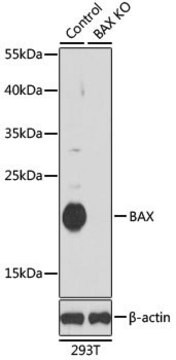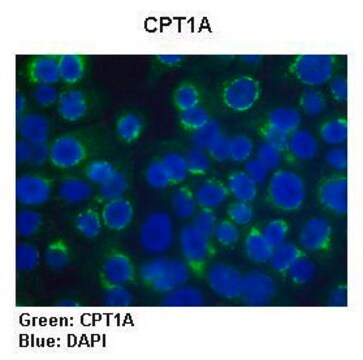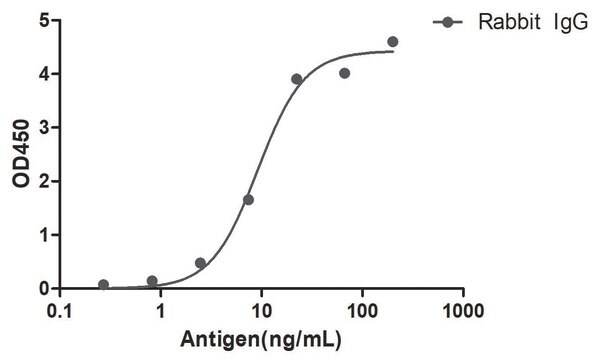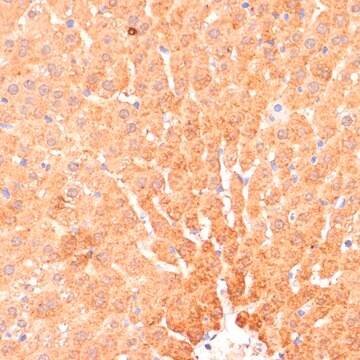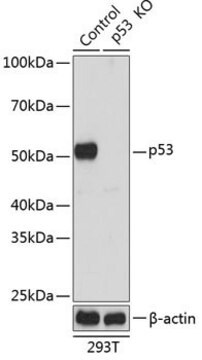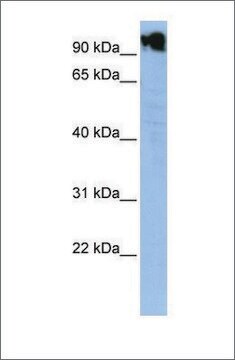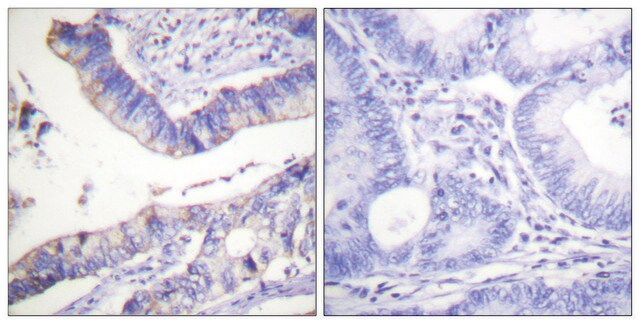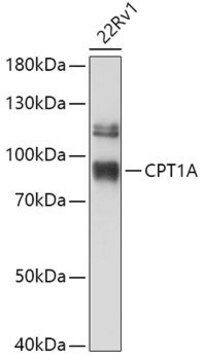SAB1410234
Anti-CPT1A antibody produced in rabbit
purified immunoglobulin, buffered aqueous solution
Synonym(s):
CPT1, CPT1-L, L-CPT1
About This Item
Recommended Products
biological source
rabbit
conjugate
unconjugated
antibody form
purified immunoglobulin
antibody product type
primary antibodies
clone
polyclonal
form
buffered aqueous solution
mol wt
antigen 88.4 kDa
species reactivity
human
technique(s)
western blot: 1 μg/mL
NCBI accession no.
UniProt accession no.
shipped in
dry ice
storage temp.
−20°C
target post-translational modification
unmodified
Gene Information
human ... CPT1A(1374)
General description
Immunogen
Sequence
MAEAHQAVAFQFTVTPDGIDLRLSHEALRQIYLSGLHSWKKKFIRFKNGIITGVYPASPSSWLIVVVGVMTTMYAKIDPSLGIIAKINRTLETANCMSSQTKNVVSGVLFGTGLWVALIVTMRYSLKVLLSYHGWMFTEHGKMSRATKIWMGMVKIFSGRKPMLYSFQTSLPRLPVPAVKDTVNRYLQSVRPLMKEEDFKRMTALAQDFAVGLGPRLQWYLKLKSWWATNYVSDWWEEYIYLRGRGPLMVNSNYYAMDLLYILPTHIQAARAGNAIHAILLYRRKLDREEIKPIRLLGSTIPLCSAQWERMFNTSRIPGEETDTIQHMRDSKHIVVYHRGRYFKVWLYHDGRLLKPREMEQQMQRILDNTSEPQPGEARLAALTAGDRVPWARCRQAYFGRGKNKQSLDAVEKAAFFVTLDETEEGYRSEDPDTSMDSYAKSLLHGRCYDRWFDKSFTFVVFKNGKMGLNAEHSWADAPIVAHLWEYVMSIDSLQLGYAEDGHCKGDINPNIPYPTRLQWDIPGECQEVIETSLNTANLLANDVDFHSFPFVAFGKGIIKKCRTSPDAFVQLALQLAHYKDMGKFCLTYEASMTRLFREGRTETVRSCTTESCDFVRAMVDPAQTVEQRLKLFKLASEKHQHMYRLAMTGSGIDRHLFCLYVVSKYLAVESPFLKEVLSEPWRLSTSQTPQQQVELFDLENNPEYVSSGGGFGPVADDGYGVSYILVGENLINFHISSKFSCPETDSHRFGRHLKEAMTDIITLFGLSSNSKK
Physical form
Disclaimer
Not finding the right product?
Try our Product Selector Tool.
Storage Class Code
10 - Combustible liquids
WGK
WGK 3
Flash Point(F)
Not applicable
Flash Point(C)
Not applicable
Certificates of Analysis (COA)
Search for Certificates of Analysis (COA) by entering the products Lot/Batch Number. Lot and Batch Numbers can be found on a product’s label following the words ‘Lot’ or ‘Batch’.
Already Own This Product?
Find documentation for the products that you have recently purchased in the Document Library.
Our team of scientists has experience in all areas of research including Life Science, Material Science, Chemical Synthesis, Chromatography, Analytical and many others.
Contact Technical Service